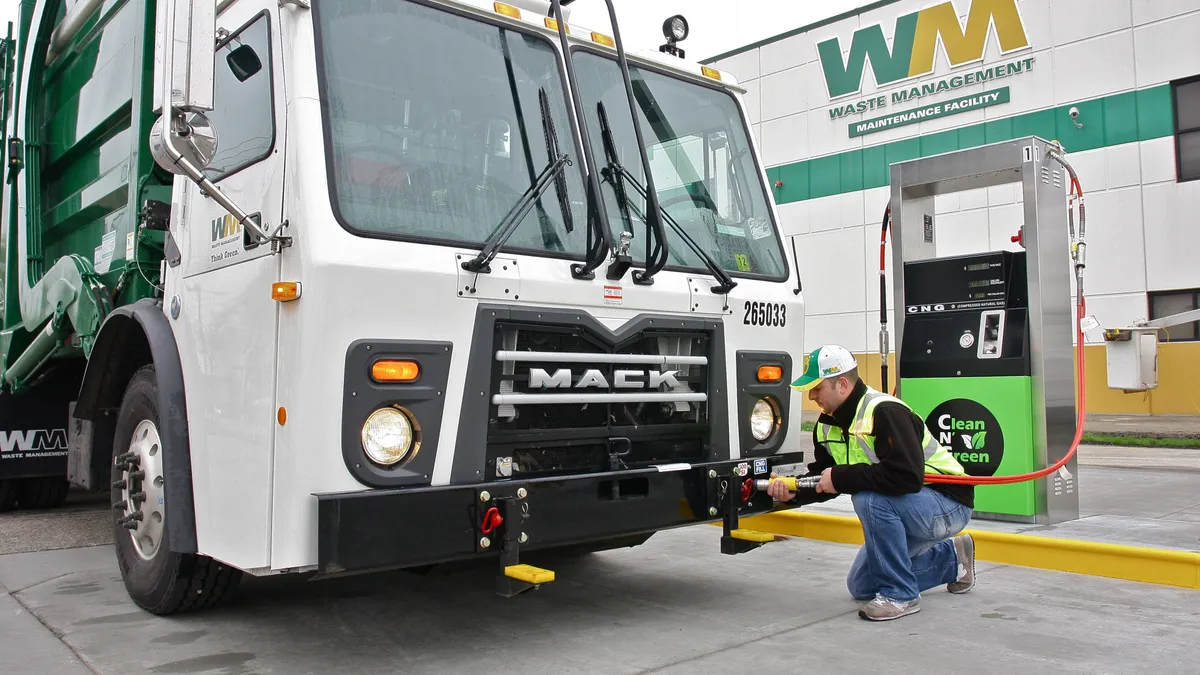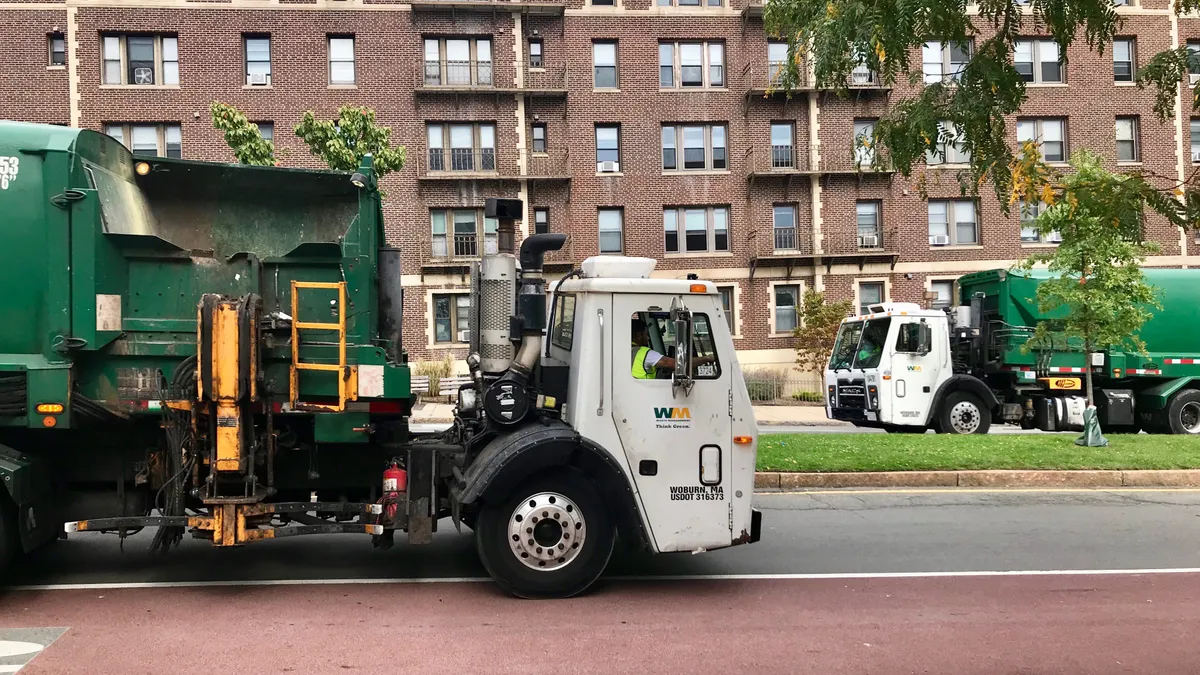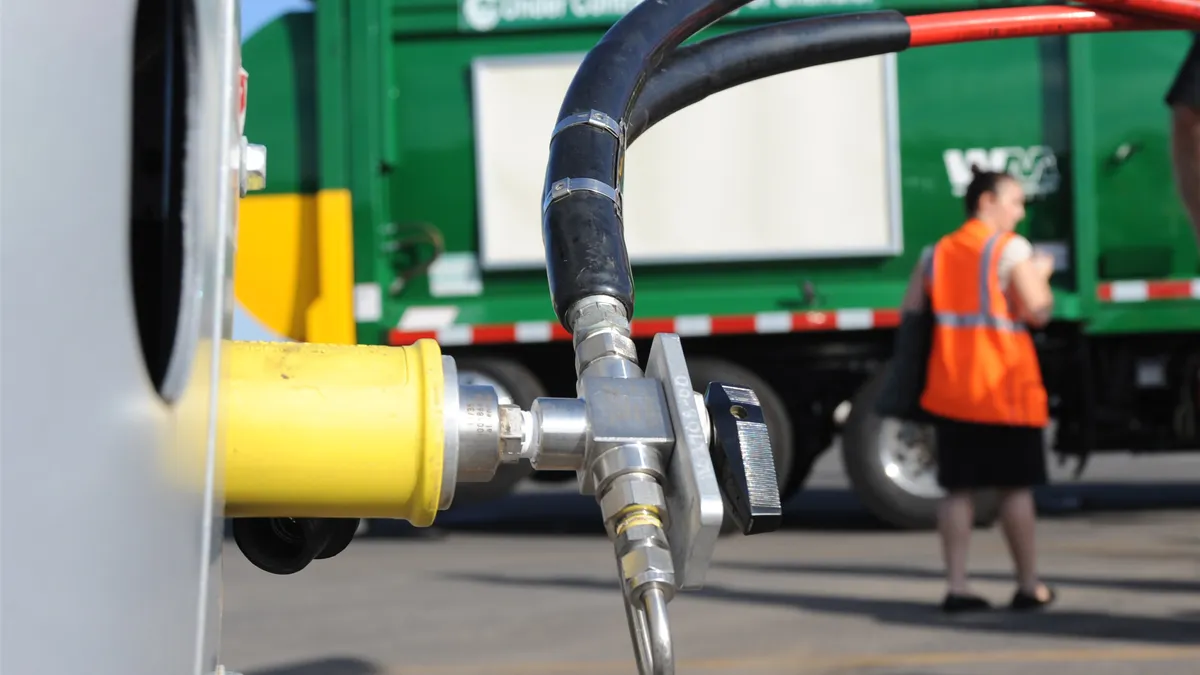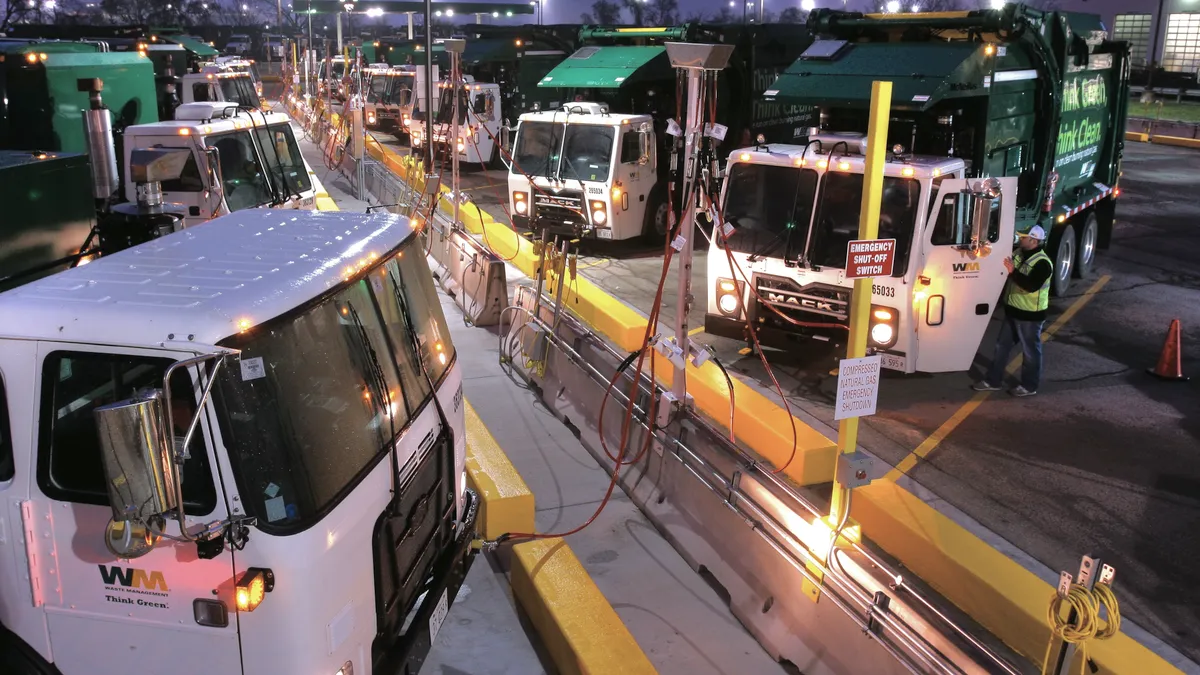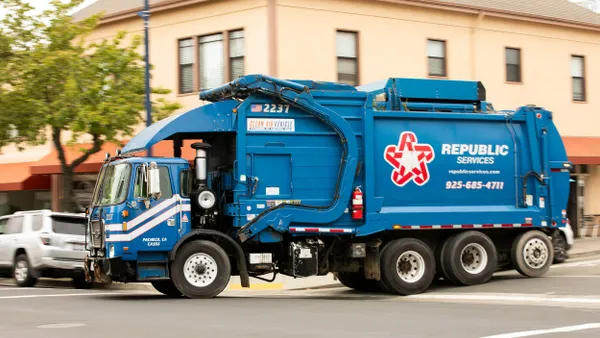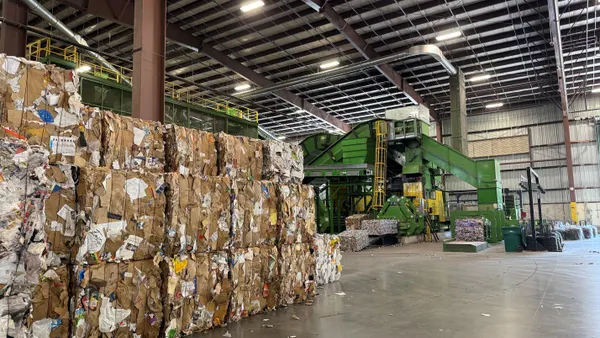Q2 Earnings
| Revenue | $4.476B |
| Year-Over-Year Change | 25.7%▲ |
| Net Income | $351M |
Waste Management revised its annual guidance for the second time this year, based on better-than-anticipated economic recovery trends during the second quarter and additional growth expected in the back half of the year.
The company now projects 2021 revenue will be up by 15.5% to 16% year over year, compared with prior projections of a 12.5% to 13% increase. During a Tuesday earnings call, executives shared a host of third-quarter and second-half projections, including that more pandemic-affected volumes will bounce back, price increases will offset inflation, recycled commodity values will stay high and the Advanced Disposal Services acquisition will yield further cost savings.
Economic snapshot
- Waste Management's collection and disposal volumes were up 9.6% year over year, with MSW and commercial volumes hitting pre-pandemic levels. Overall landfill volumes have not fully returned due to lagging C&D and special waste volumes, but the company says it's seeing positive trends in that area.
- CEO Jim Fish reported that labor pressures are easing slightly, though he still sees enhanced unemployment benefits as a limiting factor when it comes to recruitment. After months of challenging conditions, Waste Management said it may have turned the corner by bringing on 685 new drivers and technicians in June while only losing 125.
- Supply-chain constraints have posed a challenge to getting new trucks and containers, thus the company may not use its entire projected capital expenditure budget this year. Chief Financial Officer Devina Rankin estimated this issue is temporary and said the company will be accelerating capital spending in areas less affected by these issues, such as MRFs.
One year after experiencing the worst financial effects of the pandemic, Waste Management's leadership expressed ongoing optimism in the latest earnings report and sees potential for further recovery. Areas for improvement include volumes in Canada, which remain soft due to the country's ongoing pandemic restrictions, as well as commercial volumes, which have bounced back sooner than expected but still lag pre-pandemic amounts.
“We really haven’t seen kind of the growth aspect of the economy hit that commercial line of business," Fish said, generally calling out streams in particular that have lagged but are now trending upward. "Maybe most encouraging of all for us individually, and then also on a more macro basis for the overall economy, are our C&D and special waste streams."
Fish described those streams as some of the best barometers for the company and North American business trends more broadly, calling them "a good macro sign for the economy." Heading into the fall, Waste Management is also waiting to see the performance of school and office volumes, which still aren't back to normal levels.
Chief Operating Officer John Morris also said it is still too soon to know how residential streams will be affected by evolving remote-work trends and heightened e-commerce ordering patterns in the long term, but he described the area as an ongoing focus to improve margins. He said the company recently exited a large franchise contract in the Southeast that it felt was underperforming and intends to shed more volume in the future as needed.
Similarly, Fish said it is also too early to fully project longer-term trends for the company past this year. Executives did not discuss the delta variant's possible economic or labor effects during the call. But Fish added, "we’re feeling encouraged about the volume and the price forecast as we think about 2022 and even beyond 2022."
ESG and regulatory factors
- Waste Management's recycling business reported its strongest performance to date, with $397 million in revenue. The company attributed this record quarterly result to revised contract structures, average commodity values of around $100 per ton in the quarter, and a 35% reduction in labor costs at the company's newly upgraded MRFs.
- Rankin said the company now plans to accelerate its spending on MRF upgrades, aiming for $65 million or more before the end of the year. Fish now anticipates commodity values will be consistently higher due to recent structural shifts in the market. “I think the recycling business has changed a lot from when we had our last peak [in 2017], and it’s changed for the better and I think it’s changed permanently.”
- Fielding questions on PFAS and extended producer responsibility, executives described the former as a net financial opportunity and the latter as something that can be managed depending on regulatory frameworks. As for President Joe Biden's recent executive order to combat corporate consolidation, Fish said he's yet to see any clear implications for the waste industry.
Looking ahead
- Waste Management now anticipates using its full $1.35 billion stock buyback authorization. During the second quarter, the company reported $250 million worth of buybacks and $242 million in dividends.
- The Advanced integration continues to proceed as anticipated, with around 45% of the former company's operations now integrated into Waste Management's systems and all customers set to be shifted over by the end of the year. The company projects upward of $100 million in run rate synergies this year, with another $50 million next year and beyond, due to cost efficiencies and capital savings.
- No notable acquisitions were reported for the quarter, and Fish described it as unlikely the company would consider buying any assets outside of its current business lines. "We’re cautious about big acquisitions regardless, but particularly cautious about big non-core acquisitions," he said. "I just don’t want to step on a land mine here as we’re walking down a pretty nice path."



